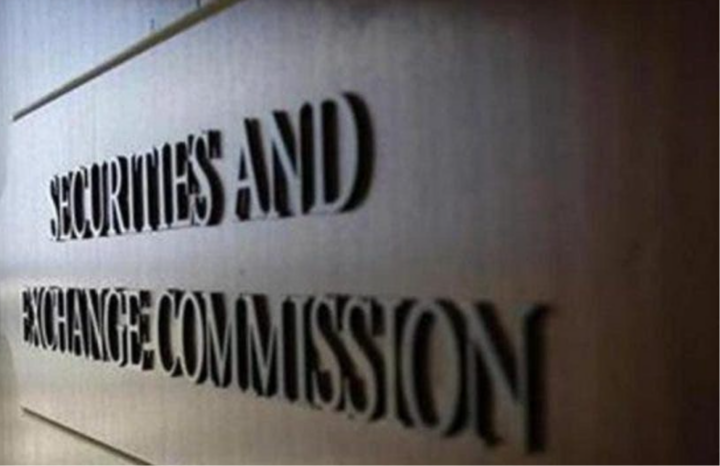The Securities and Exchange Commission (SEC) has raised fresh concerns about the rising wave of fraud and scams in Nigeria’s virtual asset space, warning that such activities are steadily eroding investor confidence and threatening the integrity of the financial system. Speaking during an event to mark the African Union Anti-Corruption Day in Abuja, the Director-General of the SEC, Dr. Emomotimi Agama, said the unchecked proliferation of unregulated crypto platforms, fake investment schemes, and Ponzi operations disguised as virtual asset opportunities is putting ordinary Nigerians at risk.

In his remarks, Agama stressed that while digital assets and blockchain technology hold great promise for expanding Nigeria’s financial markets, they are also increasingly being exploited by fraudsters to swindle unsuspecting investors. According to him, the rise of these scams is not only draining people’s savings but also discouraging legitimate investors who might otherwise help to grow Nigeria’s capital market.
“Virtual asset scams have become a serious challenge to the credibility of our markets,” he said. “People lose their money to criminals who promise outrageous returns and operate outside the regulatory framework. This damages trust, discourages investment and ultimately undermines our ability to build a robust, transparent financial ecosystem.”
In the past few years, Nigeria has emerged as one of the biggest markets for cryptocurrencies and other virtual assets in Africa. Reports suggest that Nigerians traded over \$50 billion worth of crypto between mid-2022 and mid-2023, driven by a young, tech-savvy population looking for alternative ways to preserve wealth amid currency devaluation and economic hardship. However, this surge has come with significant risks. Dozens of fake crypto schemes have sprung up across the country, many of them promising mouth-watering returns that are simply too good to be true.
The SEC boss explained that many of these schemes operate through social media, using influencers, celebrities, and online ads to lure unsuspecting people. In some cases, promoters claim to be linked to foreign crypto exchanges or claim their tokens are registered when they are not. Victims, often desperate to earn quick profits, end up investing their life savings only to discover that the platforms disappear overnight or restrict withdrawals.
According to Agama, these fraudulent activities have made it harder for genuine players in the digital asset space to gain public trust and attract sustainable investment. He warned that unless urgent steps are taken to tackle the problem, Nigeria risks becoming a breeding ground for scammers and losing its chance to benefit fully from the promise of digital finance.
To tackle the problem, the SEC said it is intensifying efforts to regulate virtual asset activities and close loopholes that fraudsters exploit. The new Investments and Securities Act signed into law in 2023 gives the Commission greater powers to supervise digital asset offerings and protect investors from bad actors. Under the Act, all virtual asset service providers—including exchanges, token issuers and digital brokers—must register with the SEC before offering services to Nigerians.
Agama said the Commission is working with other agencies like the Central Bank of Nigeria (CBN), the Economic and Financial Crimes Commission (EFCC) and the Corporate Affairs Commission (CAC) to track, investigate and shut down illegal platforms. He added that promoters of unregistered schemes would face severe penalties, including fines and jail terms, if found guilty of defrauding investors.
“We are not against innovation,” Agama said. “What we want is a safe, orderly market where investors’ funds are protected, and legitimate businesses can thrive. Digital assets are here to stay, but they must be properly regulated.”
In addition to enforcement, the SEC is ramping up investor education campaigns to help Nigerians spot scams and make better financial decisions. The Commission recently launched a series of workshops, public service announcements and school outreach programmes aimed at teaching people how to verify investment offers and avoid fraud. The SEC also publishes a list of licensed operators on its website to guide investors.
Experts say the fight against virtual asset fraud must go hand in hand with public awareness. Financial analyst and blockchain advocate Chinedu Okoro believes too many Nigerians still fall for schemes that promise unrealistic returns. He notes that greed and lack of knowledge remain key drivers of the problem.
“Most of these scams promise returns of 20 or 30 percent every month. That alone should be a red flag for anyone,” Okoro said. “People need to learn that high returns come with high risks. If it sounds too good to be true, it probably is.”
While the SEC’s actions are a step in the right direction, some stakeholders argue that more needs to be done to strengthen enforcement and rebuild investor confidence. They point out that prosecution of fraudsters is still too slow, and many victims rarely recover lost funds.
For now, Agama says the Commission remains committed to cleaning up the virtual asset space and ensuring that digital innovation does not become a tool for fraud. He urged Nigerians to be cautious, verify investment opportunities, and report suspicious platforms.
As Nigeria works to position itself as a hub for fintech and digital finance, regulators face the tough task of balancing innovation with investor protection. If the SEC and other agencies succeed in curbing scams and restoring trust, the country could unlock the benefits of digital assets while shielding its citizens from financial predators. Until then, experts advise Nigerians to do their homework and remember one simple rule: if an investment promise sounds too good to be true, it probably is.
Support InfoStride News' Credible Journalism: Only credible journalism can guarantee a fair, accountable and transparent society, including democracy and government. It involves a lot of efforts and money. We need your support. Click here to Donate
